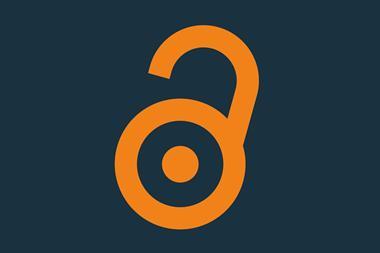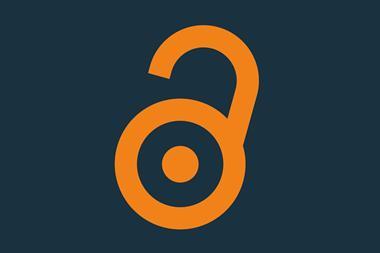Coalition S, a collective of European research funding bodies, have set an unflinching agenda for making all academic publishing Open Access by 2020.
This month 11 European national research funding organisations, including the UKRI, launched Coalition S. Backed by the European Commission and the European Research Council, the coalition exists to realise the goal of Plan S (set out in July) that all papers on research that received public grants from national and European research councils and funding bodies should be published Open Access (OA) from 1 January 2020. Plan S is bold and unwavering in its goal and the coalition is no less determined to make it a reality.
The devil is in the detail. A few noteworthy points, in no particular order: fees for publishing in OA journals should be standardised and capped across Europe; funders will be responsible for establishing what a compliant OA journal looks like – and if none exist, the funders should go about incentivising their establishment; that ‘hybrid’ models (where authors can pay to make their article freely available within a subscription journal) should be made extinct – the whole journal needs to be OA, not just one paper; and articles should be immediately available with no embargos – so that’s called time on Green OA as well.
There are some sticky wickets. Standardising and capping OA fees across Europe could be a sensible measure to equalise access but it could also stymy disruption and competition in a global market. For a university that spends money on subscriptions and publishing, perhaps the overall cost stays the same – the library’s’ subscription budget transfers to the research department. And if you consume a lot of research but rarely publish it – industry for example – then a seismic shift to OA would save you a lot of money.
Journal publishers might react by flipping all their journals to OA but, then again, they might not.
If you’re working collaboratively such that your research is partly funded by a coalition member, do all authors have to wholly follow the rules? As Plan S only covers research funded by European agencies will it create a European research environment that is out of step with the rest of the world? Could this make Europe a trend-setter and example for others to follow, or will research powerhouses like the US and China race ahead without us? Dare I mention Brexit?
Plan S will narrow the range of journals with which researchers can choose to publish and the researcher might happily accept that as part of the deal. But is the visibility and rigor of research at risk if the best-fit, best quality journal is ruled out because it isn’t deemed to be compliant with the funding body’s OA policy? Journal publishers might react by flipping all their journals to OA but, then again, they might not. How do we feel about reducing a range of publishing models to one (OA) model – is it the only right and true course of action or is it something that could have unpredictable consequences for participation, dissemination and inclusivity?
There’s been some blistering opening salvos from both sides of the debate. Tom Reller at Elsevier quipped that ‘if you think information shouldn’t cost anything, go to Wikipedia’, to which George Monbiot riposted that it was Wikipedia that killed commercial encyclopaedias. Springer Nature and AAAS have raised concerns over academic freedom, quality and the Euro-centric nature of the plan. Marc Shiltz, President of Science Europe (the organising body for Plan S), simply believes that ‘monetising the access to new and existing research results is profoundly at odds with the ethos of science’ but he also acknowledges the value of publisher services in review, editing and digital dissemination (Kent Anderson, writing for Scholarly Kitchen, reckons there are 102 things that journal publishers do).
So what now? Another question; I have more questions than answers. I believe the future of publishing is open rather than closed and there’s no denying that Plan S is bold, purposeful, inspirational, a revolution. But it comes with compromises, choices and, for now at least, a lot of uncertainty. Maybe this is the day we broke the system. I hope we know how to fix it.












No comments yet